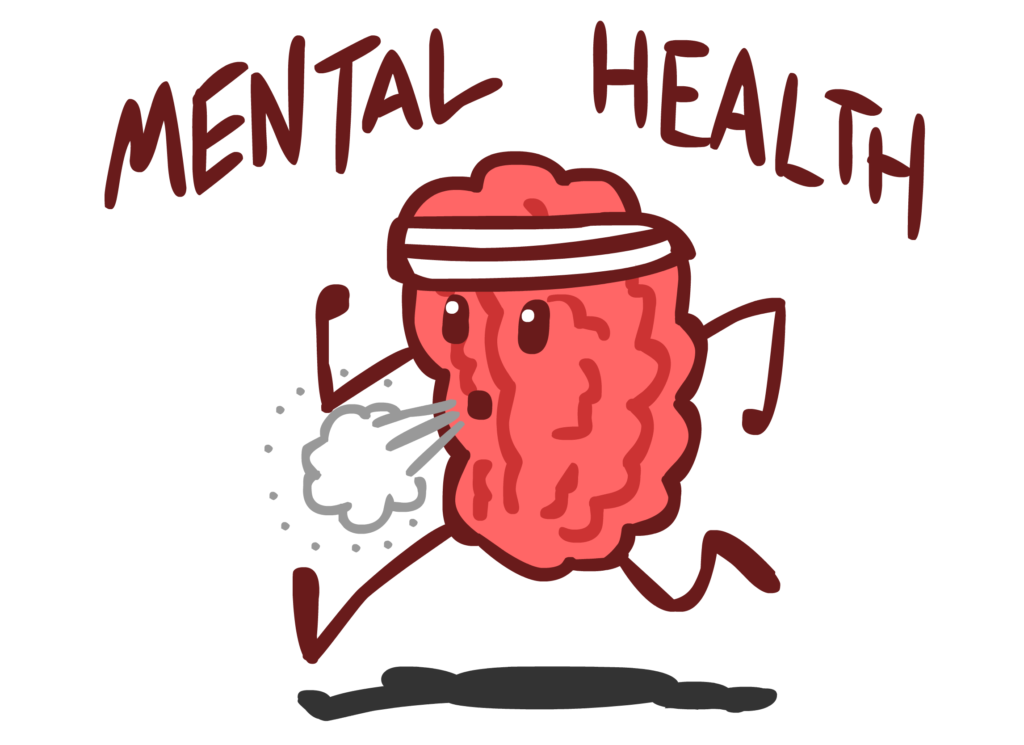Cady Stribling
Features Editor
cstribling1@murraystate.edu
Grant Dillard
Contributing Writer
gdillard@murraystate.edu
Even if not affected directly, the COVID-19 pandemic can be highly stressful for students, faculty and community members and take a toll on their mental health. It’s important for everyone to make sure they are taking care of themselves both physically and mentally.
Esther Malm, assistant professor of psychology, said drastic changes to daily routines can cause panic, feelings of hopelessness and loss of control.
“Students may find it difficult to sleep, be distracted and have their minds racing due to the continuous uncertainty, loss and regular breaking news about the pandemic from the media,” Malm said.
Although students may be glad to be home, Malm said campus can be a peaceful and positive environment, so going home unexpectedly can trigger anxiety, depression or other similar experiences.
The News reached out to the Counseling Center to get some helpful advice for those who might be struggling during this time.
A representative from the center provided tips to follow to help maintain positive thoughts and mental health by keeping up with self-care.
“In general, self-care is probably the most important thing to remember at this time,” the representative said. “Try to get enough sleep, eat healthy foods at regular intervals, exercise daily, practice good hygiene, try to maintain some social connection and find a good balance of work and play.”
The representative also recommends going outside and getting exercise while obeying proper social distancing guidelines.
Malm advises students to use support systems.
“Identify your support systems while at home–family members, friends, etc.,” Malm said. “Let them know the struggles and seek support. There is no shame in seeking professional support so do not hesitate to request for it.”
Like the Counseling Center, which is conducting online sessions, most counseling services are moving online.
Malm said mental health is your first priority.
“Is watching the news stressing you?” Malm said. “If yes, turn it off. Truth is, you cannot control what is happening out there but you can control what you see, hear and react to.”
Rewatching and replaying the news to catch up later is always an option, Malm said.
The Counseling Center representative said sparking creativity can also be a valuable way to spend time like painting, building with Legos or starting a gratitude journal.
Sticking with a schedule is also important to establish good mental health.
“Maintaining a schedule and routine can be really helpful not only for your mental health but also for your academics,” the representative said. “Try to get up at the same time every day, have something to eat, take a shower and get dressed, and then you will feel more awake and ready to be productive.”
Schedules that were kept at school might not work at home, so the representative said if you don’t want to stick with your regular schedule, develop a new one.
Malm recommends rewarding yourself after completing tasks and connecting to friends and family.
“This pandemic will end,” Malm said. “We may not know when yet. For now, we must follow federal and state instructions for our care and safety. We will pull through together one day at a time. Be encouraged.”
Anyone in need of counseling services can email msu.counselingcenter@murraystate.edu or visit the Counseling Center website, www.murraystate.edu/counselingcenter, for additional tips under the “Self-Help Resources” section, whether pandemic-related or not.
Additional Links
National Suicide Prevention Hotline: https://suicidepreventionlifeline.org/talk-to-someone-now/
National Sexual Assault Hotline: https://hotline.rainn.org/online
National Dating/Domestic Violence Hotline: https://www.thehotline.org/help/




























































































